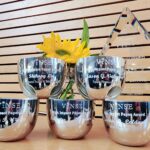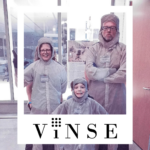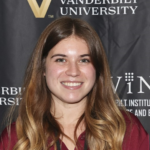Author
Launch of VINSE NanoGuides Program
Oct. 13, 2023—VINSE’s mission is to drive innovation in nanoscience, nanotechnology, and education that benefits society, and we take the immersive education and outreach component of our mission very seriously. Over the past 15 years, VINSE has positively impacted more than 45,000 students from 28 counties in Tennessee with their nanoscience outreach activities. This fall, VINSE is...
New Short Course in Microelectronics
Oct. 13, 2023—Microelectronic devices are found in an ever-growing number of everyday items such as phones, cars, clothing, and medical products, and ongoing development efforts are aimed to reduce size, increase performance, improve energy efficiency, and integrate into new application areas. The goal of the course is to provide understanding of the fundamental processes used for fabrication...
NanoGuides Logo Design Competition
Oct. 12, 2023—Goal Create an attractive logo representing the NanoGuides Program. NanoGuides are graduate student volunteers with a passion for nanoscience outreach who will lead many of the VINSE STEM outreach activities. The winning design will receive a $300 cash prize. Rubrics The design must be exclusively your own and cannot include logos and trademark images No...
VINSE Recognizes Faculty Accomplishments in the 17th Annual Fall Faculty Celebration
Oct. 11, 2023—The 17th annual VINSE Fall Faculty Celebration was held on October 10, 2023, recognizing accomplishments of our community and celebrating faculty promotions. WELCOME TO VINSE Xiaoguang Dong | Mona Ebrish | Marjan Rafat | Krishnendu (Krish) Roy | René Colehour | Jasmine Zhang FACULTY PROMOTIONS We celebrate the recent promotions of the following faculty: Shihong...
VINSE Celebrates National Nano Day (October 9)
Oct. 11, 2023—October 9 is the National Nano Day! This annual event features community-led events and activities on or around October 9 to help raise awareness of nanotechnology, its use in products that enrich our daily lives, and the challenges and opportunities for the future. This date, 10/9, pays homage to the nanometer scale, 10–9 meters. To...
Researcher Highlight: Chloe Frame
Oct. 9, 2023—Chloe Frame, 5th year Chemical Engineering PhD Candidate in the McCabe Lab Summary of Research: My work focuses on the outermost layer of the epidermis, the stratum corneum, which consists of corneocytes (dead skin cells) embedded in highly organized lipid lamellae. This lipid matrix is responsible for the barrier function of skin and one of...
Researcher Highlight: Jason Valentine
Oct. 6, 2023—Jason Valentine, Professor of Mechanical Engineering (primary) and Electrical Engineering; Deputy Director, Vanderbilt Institute of Nanoscale Science and Engineering Advances in optical materials and technologies have been a key enabler of the information age. Conventional free-space optical elements such as lenses, beam splitters, and polarization optics have, however, remained relatively unchanged over the course of...
Researcher Highlight: Craig Duvall
Oct. 5, 2023—Craig Duvall, Cornelius Vanderbilt Professor, Department of Biomedical Engineering; Professor, Ophthalmology and Visual Sciences; Professor, Chemical and Biomolecular Engineering The central dogma of biology is that genomic DNA encodes for messenger RNA (mRNA), which is then translated into proteins. Proteins are the fundamental units that drive the functions of cells and tissues in the body,...
Researcher Highlight: Geordan Dorsey
Oct. 5, 2023—Geordan Dorsey, a Fisk physics graduate student who uses VINSE facilities to take measurements. Gallium Oxide has been of particular interest in the last few decades due to its outstanding optoelectronic properties. The most important of these is its ultra-wide band gap of 4.8 eV, making it an attractive semiconductor for applications in solar-blind UV...
Researcher Highlight: Soren Smail
Oct. 4, 2023—Soren Smail, 2nd year Interdisciplinary Materials Science graduate student in the Weiss and Laibinis labs In the past few years, the need for rapid and sensitive point-of-care diagnostics has become readily apparent, especially for monitoring and controlling viral transmissions. Optical biosensing is a promising alternative to widely used diagnostic techniques because it can be highly...










